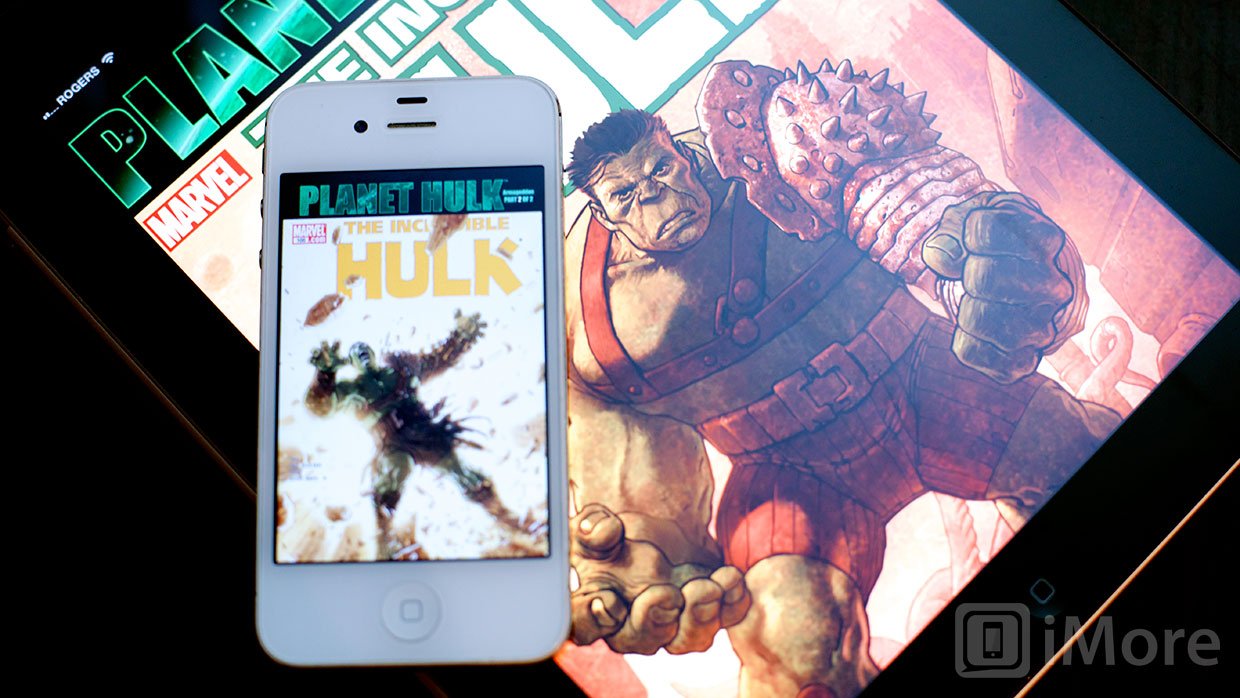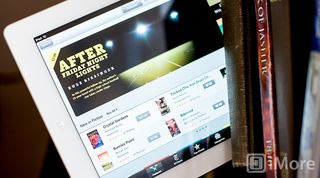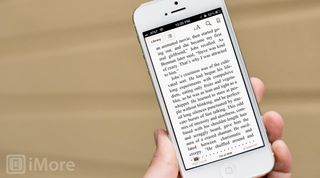Apple, iBooks, and competing with Kindle

Buried among the numbers at yesterday's iPad and Mac event, Tim Cook announced a new version of iBooks with a few new features. From the beginning I'd heard the iPad mini was about removing weight and cost as barriers of entry to iPad sales, and about taking the ebook fight to Amazon and, as Ryan Block of GDGT aptly terms them, their Kindle line of consumer content appliances. Yet the event came and went without Apple matching the Kindle on pricing, or challenging Amazon on ebooks. Why?
Macworld's Serenity Caldwell made an excellent point at the Çingleton Symposium earlier this month -- Amazon's leadership in ebooks is based on market quantity, not product quality. Apple's original iBooks format was far superior to Amazon's original Kindle format, and while Amazon's new Kindle format allows for a far more iBooks-like experience, Apple isn't slowing down in the rich ebook department by any means. Yet Amazon clearly has the market momentum and mind share.
As Graham Spencer of MacStories.net recently mapped, while Apple far outpaces Amazon and other competitors in many content areas, when it comes to books, its 31 country footprint is dwarfed by Amazon's 179. According to Apple Insider, Apple is reportedly adding 18 additional (mainly South American) countries shortly as well, if they haven't already, bringing the count to a still far-behind 50.
But there's a lot to unpack there. Apple announced additional language support yesterday, including Asian-languages like Chinese and Japanese (which looked gorgeous), bringing their total supported language count to 40. Amazon still seems stuck at 9, all of which require latin-based alphabets. Asia, and China in particular, are huge markets for Apple. That could make some difference going forward.

At the event, Apple announced 1.5 million items in the iBookstore. That includes picture books and "multitouch" books, and Apple claims customers have downloaded 400,000,000 iBooks since launch. Amazon claims over 1 million items in the Kindle store on their website, but Jeff Bezos said millions (plural) in his recent Kindle keynote. (Amazon's numbers seem to include magazines where Apple doesn't include magazines in iBooks, but has them in the App Store for Newsstand instead.) Among those Amazon titles, however, are 180,000 Amazon claims as exclusives, and with 100,000,000 downloads of these exclusives to date, popular ones. Add to the lending and library features, often cheaper content, and on rock-solid syncing services, and it's a solid advantage.
Textbooks complicate matters slightly. Apple held a special education event earlier in the year to announce text books for the iPad. Apple released iBooks so rich-media text books could be more easily generated. Tim Cook claimed at yesterday's even that 80% of the U.S. school core curriculum was now covered by iBooks textbooks, and that they're deployed at more than 2500 schools in the U.S. (Sadly, they're still not deployed to iPhone or iPod touch.) Cook also introduced a new version of iBooks Author, which included vertical templates, embedded fonts, rendered mathematical formulae, multitouch widgets, and am easier, better process for updating books. International textbook support, of course, can vary wildly for both Apple and Amazon. Amazon released the Kindle DX in the past to offer a bigger screen better geared towards the education market. Amazon no longer sells the Kindle DX, but they still offer Kindle eTextbooks, both for sale and for rental, that run on the Kindle Fire and in all Kindle apps.
And that, writ large across their catalog, is the biggest advantage Kindle books has. You can read Kindle books on Amazon's Kindle hardware, including many of them on Amazon's ultra-cheap, ultra-legible e-ink line, on Android devices, BlackBerry devices, Windows Phones, iOS devices, Mac and Windows PCs, and even the web. You can only read iBooks on iOS. There's not even a Mac client, much less a browser client. That creates a feeling of control and a sense of assurance. Even if the typography is worse, even if the app experience is worse, the lower pricing, plentiful availability, and the ability to read content on pretty much every smart device on the planet adds up to the killer feature -- ubiquity.
Master your iPhone in minutes
iMore offers spot-on advice and guidance from our team of experts, with decades of Apple device experience to lean on. Learn more with iMore!

Apple could equal or eclipse the Kindle catalog through sheer force of deal-making, something they traditionally excel at. But platform diversity is something in which Apple has historically shown almost no interest. Apple did make iTunes for Windows, but they haven't made any iTunes apps for any other non-Apple devices. And because, unlike music, commercial ebooks are still bound by DRM (digital rights management), they can't be opened by generic ereaders either. Whether you buy Kindle books or iBooks, you're still locked into that format, though the Kindle cage is much, much bigger. (I'm tempted to make the Adobe analogy, where they'd love for you to be locked into their cross-platform development tools rather than someone else's platform-specific ecosystem, but I won't. Promise.)
More content, in more places, on more devices, among other reasons, simply trumps whatever technical, interactive, and visual advantages iBooks has on iOS. Video is the same way, but books seem to evoke an even greater demand for cross-platform compatibility.
Ultimately, the ability login, be it on a $69 Kindle or high end smartphone or tablet, have access to your entire ebook library, synced and ready to go, even in base text, is compelling, and is something Apple simply can't and won't match .
Given that, my expectation that Apple would make a direct run at Amazon in the ebook space was unrealistic. Given that, a broader focus on education at yesterday's event, which would have almost certainly required a broader focus on books and textbooks, was also unrealistic. The ongoing lack of iBooks for Mac is disappointing, but a new version of iBooks and a new version of iBooks Author, keeps Apple's foot in the door, provides an amazing experience for those for whom that matters more than anything Amazon's Kindle offers, and the focus on languages maintains Apple's dominance in international markets.
Apple, not surprisingly, was far more realistic when it came to iBooks than any predictions or expectations, and that's not likely to change, at least not until DRM goes away.

Rene Ritchie is one of the most respected Apple analysts in the business, reaching a combined audience of over 40 million readers a month. His YouTube channel, Vector, has over 90 thousand subscribers and 14 million views and his podcasts, including Debug, have been downloaded over 20 million times. He also regularly co-hosts MacBreak Weekly for the TWiT network and co-hosted CES Live! and Talk Mobile. Based in Montreal, Rene is a former director of product marketing, web developer, and graphic designer. He's authored several books and appeared on numerous television and radio segments to discuss Apple and the technology industry. When not working, he likes to cook, grapple, and spend time with his friends and family.